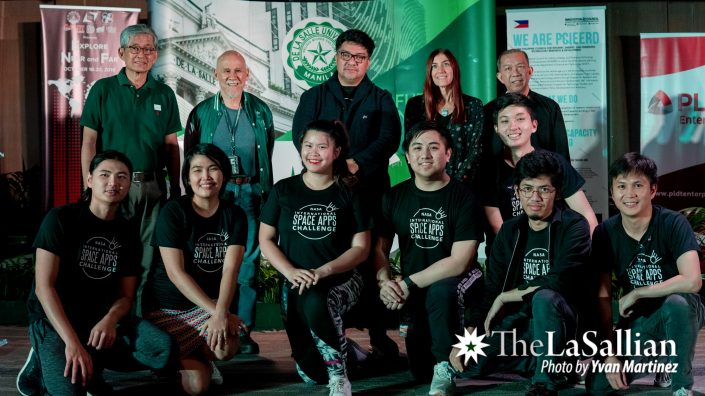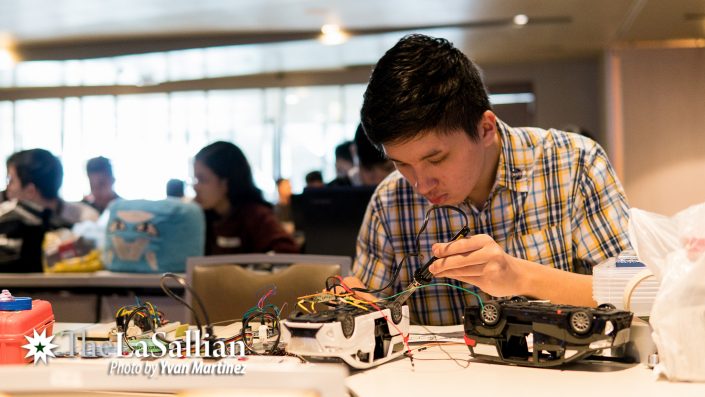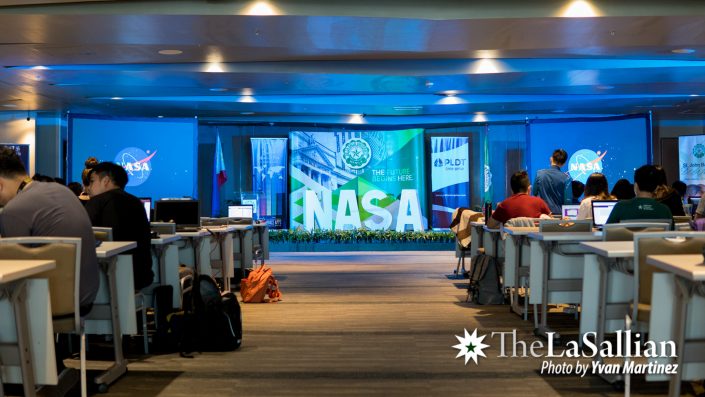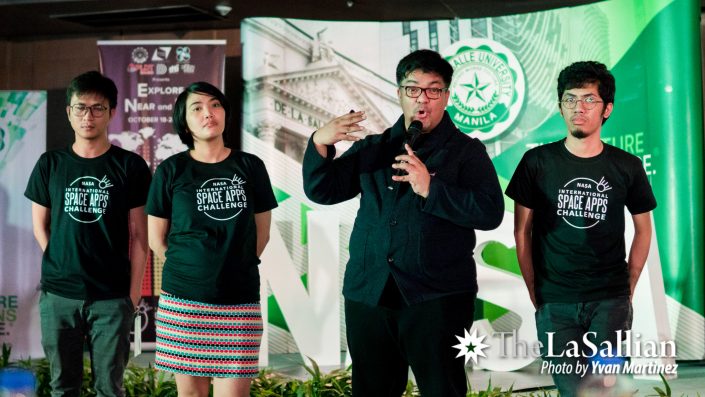From October 18 to October 20, the National Aeronautics and Space Administration (NASA) hosted its 2019 Space Apps Challenge at De La Salle University. Space Apps is a yearly event which aims to bring together students and professionals to find solutions to problems by using NASA’s open data. As the participants used their creativity in incorporating NASA’s resources into their project proposals, various mentors were present to guide them through the process.
The three day hackathon had 29,000 participants in over 200 cities around the world, with the DLSU chapter attended by 18 teams from a total of 114 applicants, according to Space Apps Local Lead Michael Domagas.
Supporting startups
When asked about the preparations for Space Apps, Domagas found it fortunate that science-related startups are enjoying the support of the Philippine government and of DLSU. “The Philippine government now is supporting the startup community. The good thing is that La Salle is also supporting startups…through incubation programs such as Animo Labs,” he said, noting that the University-based incubator would be ready to offer the winners the opportunity to bring their proposals to life.
In addition, participants need not focus on “applications and software development”. Instead, projects can range from applications and games, to various kinds of models and even artworks.
Chosen projects
For this year’s challenge, two winners were chosen to represent Manila in the global competition: Project Aedes and Ocean’s Four.
Project Aedes—which is composed of Dominic Ligot, Claire Tayco, Mark Toledo, and Jansen Lopez—aims to address the threat of a dengue outbreak by improving detection methods through extrapolating from data on environmental markers related to the disease. According to their pitch, the Department of Health’s data on dengue outbreaks is delayed by two to three months. Project Aedes hopes to solve that issue through a visual model powered by satellite, climate, and Google search data.
Prior tests by the team have shown that by combining temperature and rainfall data from the Philippine Atmospheric, Geophysical and Astronomical Services Administration with Google searches on dengue, they obtained a 0.82 correlation with dengue outbreaks. However, by adding NASA’s satellite data, the team hopes to identify areas with vegetation and water—two factors needed to support mosquito breeding areas.

Meanwhile, Ocean’s Four—a team composed of Lasallian students Samantha Santos (IV, ECE2), Grant Bulaong (IV, ECE2), Anton Alejo (V, ECE2), and Janos Lance Tiberio (IV, ECE2)—plans to clean up the ocean’s garbage through an automated system. The team began their pitch by identifying the lack of manpower as the key reason allowing oceans to remain polluted. According to them, it is “impossible to send in manpower to clean [trash] up and still be efficient.”
Ocean’s Four’s system would involve the use of data from NASA’s Ocean Surface Currents Analyses Real-time to identify areas with high garbage concentration. Afterward, ocean currents in that area will be mapped in order to understand the direction where the garbage would likely be pushed. Using GPS, a fleet of automated garbage-collecting ships will locate and intercept the floating patches of garbage, split them into smaller patches, and drag them to a mother ship using nets. Ocean’s Four hopes that their method would be able to reduce the manpower needed in cleaning up the ocean.

Opinions of participants
When asked about the experience of joining NASA’s Space Apps Challenge, a member from Team DSLR called it “exciting and mesmerizing”, reasoning that he “enjoys encountering new opportunities”. His teammate added that the event made him a little bit nervous, since it was his first time to join the competition.
Meanwhile, Robina Rebuyo, a member of Team Nasa All, appreciated the fact that there were mentors to guide them. “Instead of [the event] feeling like a competition, it became an opportunity to learn something,” she shared in Filipino.
with reports from Enrico Sebastian Salazar


